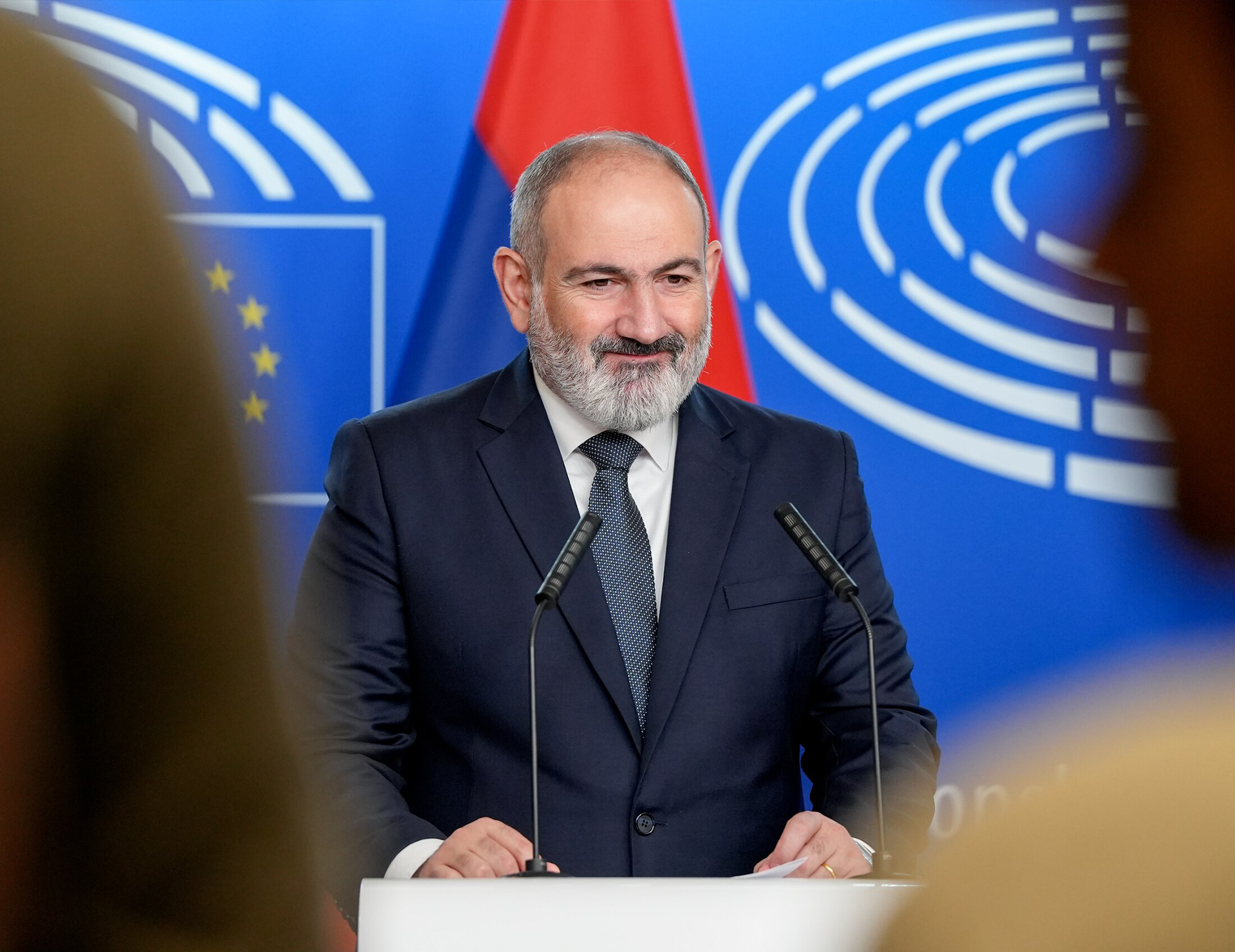From Moscow to the West: Armenia in a security trap

For decades, Armenia's foreign policy and security had been predominantly tied to Russia, with Armenia hosting thousands of Russian soldiers and its defence sector exclusively linked to Moscow. However, on February 1, Nikol Pashinyan said that Armenia can no longer rely on its historical dependence on Russia and emphasized the imperative to reevaluate and diversify the security relations it has. He highlighted the need to forge strategic partnerships with global players such as the United States, France, and India. The Prime Minister posed questions regarding the nature of Armenia's security relations with key nations, including Georgia and Iran. He critically evaluated the future of Armenia's commitment to the CSTO, raising uncertainties about the nation's continued membership. It is important to mention the latest arms agreements made by Armenia. Yerevan recently signed a deal with a French company PGM to purchase guns, as announced by its Defense Minister, Suren Papikian, during a news conference in Yerevan on February 23. In October 2023, France and Armenia agreed on air defence hardware, which include getting three advanced Thales Ground Master (GM200) radars capable of detecting aircrafts up to 250 km away. Apart from France, Armenia has also signed defense contracts with India, totaling at least $400 million since September 2022.
Continuing on this path, on February 22, Pashinyan made an announcement during his interview with France24 that Armenia had taken a significant step by "freezing" its participation in the activities of the CSTO. Furthermore, he accused high-ranking Russian officials of openly encouraging the Armenian people to overthrow the government during the fall of 2023. Yet he added that the prospect of closing the Russian military base in Armenia is currently "not on the agenda."
More recently, the European Parliament has adopted a resolution proposing to consider the possibility of granting Armenia the candidate status for EU membership. Additionally, Deputy Foreign Minister of Armenia, Paruyr Hovhannisyan, announced at a meeting of the Standing Committee of the National Assembly on European Integration that Armenia is developing a new document on cooperation with the European Union, planned to be signed by July. However, Prime Minister Pashinyan clarified at a press conference that the issue of Armenia's accession to both the European Union (EU) and Eurasian Economic Union (EAEU) requires a referendum. This could be a tactical manoeuvre to resist would-be Russian backlash by arguing that "this is rather the choice of people, instead of government". Furthermore, in an interview with TRT World, Armenian Foreign Minister Ararat Mirzoyan conveyed that Armenia is actively considering different scenarios and aims to diversify its alliances.
Relations between Yerevan and Moscow are currently marked by ambiguity. On the one hand, there is strong economic cooperation, with growing trade and Armenia leading the Eurasian Economic Union. On the other hand, there's a noticeable shift in political and security dynamics, suggesting Armenia is aligning more with Russia's rivals. But the question arises here: what allows Armenia now to depart from its historical reliance on Russia and make a move towards the West?
The paradigm shift in Armenia's foreign policy can be ascribed to a confluence of critical factors, with the loss of Karabakh emerging as a pivotal factor. Historically, Armenia has maintained a significant reliance on Russia, particularly concerning the Karabakh issue. The strategic partnership with Russia was deeply embedded in the nation's security architecture and geopolitical calculations. However, the second Karabakh war and events in September 2023 served as a stark awakening for Armenia. The military defeat and loss of Karabakh revealed limitations in Armenia's security strategy. The perceived lack of support from Russia during the Second Karabakh War and subsequent events fueled discontent within Armenian society. The notion that Russia did not provide the expected assistance and that Armenia found itself vulnerable despite its reliance on Moscow, gained traction. Public sentiment began to shift, with an increasing hatred for the Kremlin. The loss of Karabakh, in a paradoxical way, set Armenia free in shaping its foreign policy. The 26-year-long occupation of Nagorno-Karabakh and seven adjacent regions of Azerbaijan had been enabled by Russia's support, but it also tied Armenia closely to Moscow's geopolitical interests. However, achieving complete “freedom” for Armenia necessitates the resolution of all issues with Azerbaijan. A key to this freedom is establishing peace with Azerbaijan that will eliminate any perception of Armenia as a potential threat in the eyes of Azerbaijan. Only once normalisation between Baku and Yerevan is achieved can Armenia consider decoupling from Russia and making a shift in its foreign policy.
Secondly, the ongoing conflict between Russia and Ukraine has played a crucial role in Armenia's recalibration. With the Kremlin's attention predominantly focused on the Ukrainian front, Armenia may perceive an opportune moment to diversify its partnerships without facing immediate geopolitical repercussions. The intensifying war has seemingly created a window of opportunity for Armenia to maneuver. These two major developments, the loss of Karabakh and the Russia-Ukraine war, have collectively created an environment conducive to Armenia's strategic pivot and departure from the traditional reliance on a single major ally such as Moscow.
Yet, the nature of Yerevan's foreign policy shift has been performative rather than substantive. Armenia's economy is heavily dependent on Russia: the former imports natural gas and oil for most of its energy needs — more than 80% from the latter. The presence of around 10,000 Russian troops in Armenia further highlights the complexity of any significant disengagement. While Prime Minister Pashinyan has hinted at reevaluating defence ties and freezing participation in CSTO activities, the continued presence of a Russian military base on Armenian territory shows the practical challenges of breaking away from Moscow. The performative nature of Armenia's foreign policy shift is also evident in its diplomatic interactions. Until now, Armenia has not taken concrete steps to align with Western military alliances or establish alternative defence partnerships. In addition, the substantial remittances sent by the Armenian diaspora residing in Russia significantly contribute to Armenia's overall economic well-being. These remittances serve as a vital source of income for many Armenian households, supporting daily expenses, education, healthcare, and various other essential needs. This consistent influx of remittances also contributes to the overall stability of Armenia's economy. It provides a reliable source of foreign exchange, helping to alleviate economic challenges and contributing to the country's balance of payments.
All in all, while Armenia may express intent to diversify its security relations, the tangible steps taken so far seem more performative than substantive. The situation remains dynamic, and the true extent of Armenia's departure from its historical reliance on Russia will become clearer as more concrete actions unfold in the coming months. While Armenia seeks security guarantees, the reorientation of defence supply away from Russia may not be sufficient to establish an alternative security framework. This is due to the limitation that neither France nor India can provide guarantees on the ground. Here, it would be crucial to understand that Armenia finds itself in a security trap, and to get out of it, Yerevan should aim for normalisation and consequent close cooperation with Azerbaijan and Türkiye. This cooperation can extend beyond security concerns to encompass regional development initiatives. While this path may be challenging, finding common ground can pave the way for a more stable future in the region







